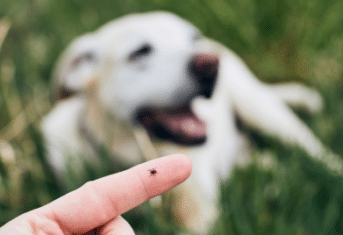Pet Stress

Pet Stress
People talk a lot about the stress in their lives: their job, their mortgage, their spouse; but do pets have stress? And if they have stress, how can you manage it?
Cat stressors
Since this blog is titled “Pet Stress,” you can guess I believe pet stress exists. I actually see it on a daily basis. The photo shows a good example of cat stress. Donovan, the new kitten, is trying to be friends with Delbert, the established top cat in the household. Donovan has snuggled into the chair. Delbert is giving him the cold shoulder and is unwilling to even make eye contact with the little invader. The addition of a new pet can be very stressful to the current one.
To decrease stress when a new cat is added to the household, the number of litter boxes should equal the number of cats, plus one. Cats like privacy and an inadequate number of litter boxes can result in inappropriate urinations and defecations. Some cats even wait outside the box to attack the other cat as he exits the preferred litter box.
Stress colitis
Dogs may respond to stressful events by developing acute diarrhea. The AMC’s emergency room staff saw a lot of this over the holidays in response to houseguests, following parties, or after a stay at the boarding kennel. I have one dog patient who always struggles with diarrhea while he is in New York City and the minute he decamps to the country house, the diarrhea is better. I think New York City is a great place to live; obviously he doesn’t agree with me, but he does eat the special food I prescribe which nicely prevents the diarrhea flare-ups.
Other stressors
Just like a new pet in the household can be stressful, a new baby, new boyfriend or a new home can cause stress in your pet. Change can be difficult for them too: a change in food, schedule, or the absence of a favorite family member, including another pet, can upset pets. Your behavior is also a pet stressor. Door slamming, yelling, angry voices and other loud noises can send your pet under the bed or provoke an accident in the house due to stress.
If you think your pet is experiencing stress, talk to your veterinarian first and if the clinical signs you’re seeing are not related to a medical condition, check back here next week for suggestions on destressing your pet.
Photo: Donovan and Delbert’s Family
________________________________________________________
This may also be found in the “Tales from the Pet Clinic” blog on WebMD.com.
For over a century, The Animal Medical Center has been a national leader in animal health care, known for its expertise, innovation and success in providing routine, specialty and emergency medical care for companion animals. Thanks in part to the enduring generosity of donors, The AMC is also known for its outstanding teaching, research and compassionate community funds. Please help us to continue these efforts. Send your contribution to: The Animal Medical Center, 510 East 62nd Street, New York, NY 10065. For more information, visit amcny.gbtesting.us. To make an appointment, please call 212.838.7053.
































